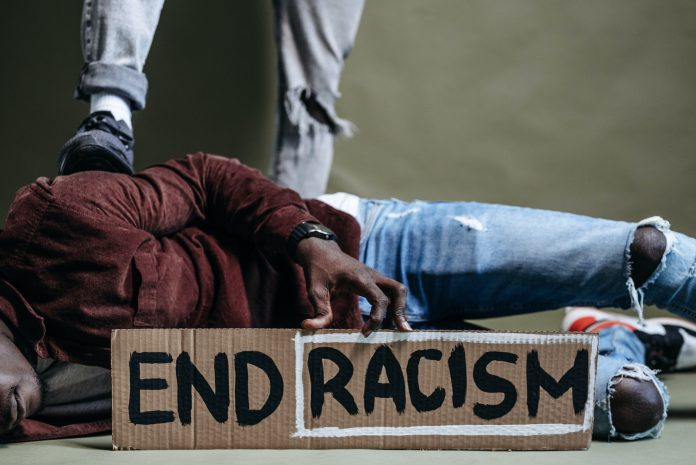Solidarity’s race-baiting billboard campaign is driven by anti-black racial prejudice that is hidden within a framework of constitutionalism, reflecting a broader global trend of white nationalism.
The core issue stems from Solidarity’s opposition to black economic empowerment (BEE) policies in South Africa, which aim to redress apartheid-era racial inequalities by providing economic advantages to black South Africans.
The union’s framing of these policies as “reverse discrimination” or “exclusion” of white workers, while invoking constitutional principles of equality, masks a deeper anti-black bias.
This is symptomatic of a global pattern in which white nationalist movements use the language of legalism and constitutional rights to challenge racial justice initiatives, portraying efforts to remedy racial injustice as unfair or unconstitutional discrimination against whites.
This approach is symptomatic of the rise of white nationalism globally, which often conflates white identity with victimhood and portrays black progress or solidarity as a threat.
White nationalism, as distinct from black nationalism, tends to be reactionary and rooted in preserving racial hierarchies and white privilege.
It uses constitutionalism and claims of equal treatment to resist affirmative action and racial redress policies that aim to dismantle systemic racism.
This racial prejudice against black people under the guise of protecting constitutionalism echoes the tactics of white nationalist movements worldwide that weaponise legal principles to sustain racial inequality and oppose transformative justice.
Thus, Solidarity’s billboard campaign—describing South Africa as “the most race-regulated country in the world”—and the union’s protests against race-based redress mechanisms reflect anti-black racial prejudice couched in constitutional terms as part of a larger global pattern where white nationalism rises by framing racial equity efforts as unjust discrimination.
This reveals the underlying resistance to black empowerment within a framework that superficially respects law and order but functionally perpetuates racial inequality and exclusion.
In the South African context, constitutionally speaking, the Solidarity campaign amounts to hate speech.
This is so because the campaign uses racially charged language that promotes or propagates hatred or hostility against policies aimed at redressing historical racial inequalities, thereby targeting specific racial groups.
By framing lawful affirmative action and race-based transformation measures as oppressive and unfair, Solidarity can, whether consciously or inadvertently, incite resentment, fear or discrimination among racial groups.
The campaign also has the potential of stoking division and racial animosity in a context where the constitution and related laws prohibit speech that advocates hatred based on race and incites harm or discrimination.
In essence, the campaign violates the Prevention and Combating of Hate Crimes and Hate Speech Act 2023, which criminalises intentional communication that promotes hatred or discrimination on racial grounds.
It also undermines societal cohesion by encouraging polarising narratives that attack constitutional values of equality, dignity and non-racialism.
Overall, the campaign crosses from political critique into advocating racial hostility, which South African law defines as hate speech because it incites harm and threatens public peace by deepening racial divides rather than contributing to constructive discourse.
In the end, the campaign is a reflection of how Solidarity’s discourse and public campaigns employ language and symbolism that incite racial antagonism by emphasising exclusion, grievance, and opposition to racial justice measures.
This stokes racial tension and hatred by polarising communities rather than fostering the much-needed reconciliation and unity in the country.
• Lekota is a veteran journalist



